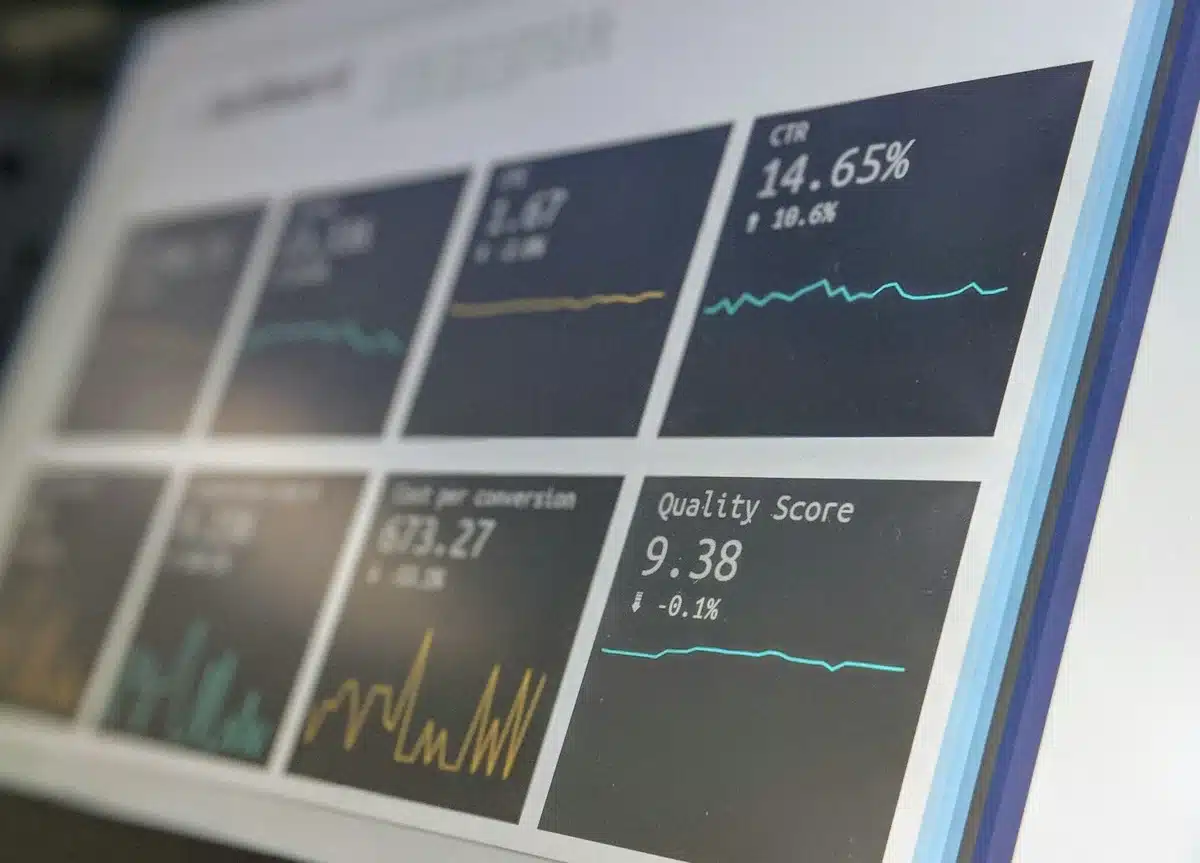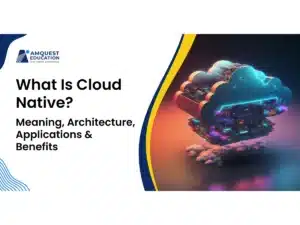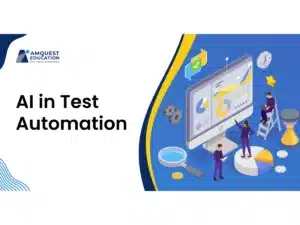In today’s fiercely competitive digital landscape, data-driven marketing is no longer optional—it is essential for businesses aiming to deliver highly targeted, personalized campaigns that maximize return on investment. By leveraging marketing analytics, companies unlock deep customer insights that transform raw data into actionable strategies. This empowers marketers to optimize campaigns in real time, anticipate customer needs through predictive modeling, and achieve precise ROI measurement. This article explores the evolution and latest trends in data-driven marketing, practical tactics to elevate your campaigns, and why Amquest Education’s Digital Marketing and Artificial Intelligence course in Mumbai offers marketers a cutting-edge path to mastering these skills.
The Evolution of Data-Driven Marketing
Over the past decade, marketing has shifted from intuition-based guesses to data-backed decisions. Early digital marketing focused mainly on surface metrics like clicks and impressions. Today, advances in big data in marketing, AI, and sophisticated consumer behavior analysis enable marketers to understand complex patterns and predict future trends accurately. Key milestones include:
- Moving away from third-party cookies to leveraging rich, privacy-compliant first-party data.
- Adoption of AI-powered tools that automate analysis and recommend the next-best actions.
- Evolution from basic descriptive dashboards to advanced predictive and prescriptive analytics for proactive campaign management.
This transformation allows marketers to move beyond guesswork, making smarter, faster decisions driven by real-time data and machine learning.
Emerging Trends and Advanced Tactics for 2025
AI-Driven Decision Intelligence and Predictive Analytics
AI is at the core of modern data-driven marketing. AI-powered platforms analyze vast datasets, detect anomalies, forecast customer lifetime value, churn probability, and recommend budget allocation across channels automatically. Predictive modeling enables marketers to anticipate customer behavior, enabling proactive campaign adjustments and personalized engagement.
Emphasis on First-Party Data and Privacy
With third-party cookies becoming obsolete due to privacy regulations like GDPR and CCPA, marketers increasingly rely on first-party data from CRM systems, loyalty programs, and transactional records. Advanced identity resolution techniques help deliver personalized experiences while respecting consumers’ privacy and consent.
Real-Time Analytics and Campaign Optimization
Unified platforms now integrate advertising, CRM, and financial data into intuitive digital dashboards that provide real-time visibility into campaign performance and revenue impact. Marketers can monitor KPIs such as conversion rates, cost per acquisition, and ROAS hourly or daily, enabling agile optimization.
Composable Data Stacks and Visualization
Modern marketing technology stacks are modular and scalable, combining data warehouses, BI tools like Tableau, and governance frameworks to handle complex data flows. Visualization tools turn raw numbers into clear insights, empowering teams to track KPI tracking effectively and make data-driven decisions.
Content, Storytelling, and Community Powered by Data
Data-driven insights inform content strategies that resonate by addressing customer pain points, preferences, and emotional drivers uncovered through conversation analytics and sentiment analysis. Interactive content formats such as quizzes and polls invite authentic user participation, fostering community and loyalty.
Practical Strategies for Marketers
To harness these trends effectively, marketers should:
- Integrate diverse data sources (web, CRM, social, mobile) into a centralized system for a holistic 360-degree customer view.
- Utilize predictive modeling tools to forecast churn and customer lifetime value, guiding retention and upselling campaigns.
- Employ AI-powered automation to personalize messaging dynamically and optimize ad placements in real time.
- Develop a robust first-party data strategy emphasizing transparency and user consent to future-proof personalization efforts.
- Leverage real-time digital dashboards for continuous campaign monitoring and agile optimization.
- Prioritize ethical data collection practices to maintain customer trust and comply with evolving privacy laws.
Business Case Study: Netflix’s Data-Driven Marketing Success
Netflix exemplifies the power of data-driven marketing. By harnessing big data and predictive analytics, Netflix:
- Personalizes content recommendations to enhance engagement and retention.
- Targets high-value customer segments with tailored messaging to optimize marketing spend.
- Adjusts campaigns in real time based on viewer behavior and feedback.
This approach fueled consistent subscriber growth and industry leadership, showcasing how analytics-driven decisions deliver measurable business impact.
Why Choose Amquest Education’s Digital Marketing and Artificial Intelligence Course?
Marketers seeking to excel in data-driven marketing can benefit immensely from Amquest Education’s comprehensive program based in Mumbai, available nationally online. The course offers:
- AI-led modules covering predictive modeling, marketing analytics, and campaign optimization with hands-on projects.
- Strong industry partnerships facilitating internships that bridge theory with practical experience.
- Faculty with extensive real-world marketing expertise, ensuring relevant and actionable learning.
- Flexible access through Mumbai classrooms and online delivery, accommodating diverse learners.
- A curriculum designed to equip students with skills to operationalize data, effectively use AI tools, and measure ROI precisely.
This unique blend of AI-driven learning and industry exposure prepares marketers to lead in the evolving digital landscape.
Actionable Tips for Marketers
- Begin building a first-party data strategy focused on quality and compliance.
- Invest in AI-powered marketing analytics tools to automate insights and improve decision-making.
- Develop predictive models tailored to reduce churn and increase customer lifetime value.
- Create data-informed, interactive content to boost engagement and authenticity.
- Monitor performance regularly through integrated dashboards and pivot campaigns swiftly.
- Maintain transparency and ethical standards in data collection to build lasting customer trust.
Measuring Success: Analytics and Insights
Effective success measurement is vital. Marketers track critical KPIs such as conversion rates, cost per acquisition, and ROAS using integrated dashboards. Advanced attribution models ensure accurate budget allocation across channels, maximizing marketing impact and minimizing wasted spend.
FAQs
Q1: What is data-driven marketing?
Data-driven marketing uses customer data and analytics to guide marketing decisions, enabling targeted, personalized campaigns that improve ROI and engagement.
Q2: How does marketing analytics improve campaign optimization?
Marketing analytics provides insights into customer behavior and campaign performance, allowing marketers to adjust tactics in real time for better results.
Q3: What role does predictive modeling play in data-driven marketing?
Predictive modeling forecasts future customer actions like churn or purchase likelihood, enabling proactive marketing strategies.
Q4: How can marketers measure ROI effectively?
By integrating data from multiple channels into dashboards, marketers track KPIs such as conversion rates and ROAS to assess and optimize campaign profitability.
Q5: Why are first-party data and privacy important in 2025?
With third-party cookie restrictions, first-party data enables personalized marketing while ensuring compliance with privacy laws and maintaining customer trust.
Q6: How does Amquest Education prepare students for data-driven marketing?
Amquest offers AI-led modules, hands-on internships, and expert faculty guidance, equipping students with practical skills in marketing analytics, predictive modeling, and campaign optimization.
Q7: How should marketers start with first-party data collection?
Begin by auditing existing data sources, ensuring consent and transparency, and integrating data into a centralized platform for unified customer insights.
Data-driven marketing is the key to smarter, more effective campaigns that deliver measurable growth. By mastering analytics, predictive modeling, and AI-powered tools, marketers can unlock powerful customer insights and optimize campaign optimization to boost ROI measurement. For those ready to advance their expertise, Amquest Education’s Digital Marketing and Artificial Intelligence course offers a unique, practical, and future-ready learning experience. Embrace data-driven marketing today to stay ahead in the digital age.






